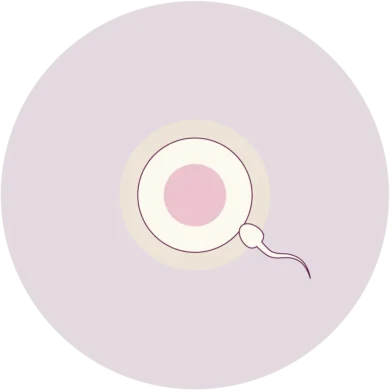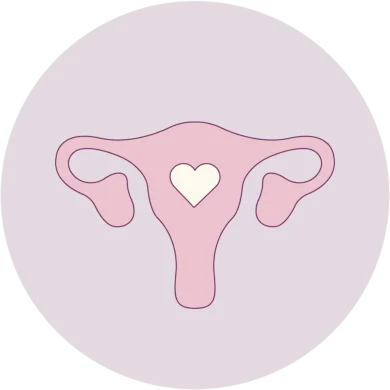In Vitro Fertilization (IVF)
If you are having difficulty becoming pregnant, we see you. Whether or not you have a diagnosis for your fertility challenges, IVF is the most effective treatment option.
How IVF Can Help Overcome Fertility Challenges
More Eggs, More Chances
Not every egg will lead to a viable pregnancy. By stimulating your ovaries to produce multiple eggs in a single cycle, IVF increases your chances of creating healthy embryos and building your family.
Sperm and Egg Connection
IVF helps eggs and sperm meet outside the body in a lab, which can solve for challenges like blocked fallopian tubes, low sperm count, or unexplained infertility, giving you the best chance to create an embryo.
Lower Risk of Miscarriage
Genetic screening of embryos created through IVF can identify chromosomal abnormalities, which are a common cause of miscarriage. This helps ensure only the healthiest embryos are transferred.
Our Approach
A successful pregnancy requires four things

01 A Healthy Egg
A “healthy” egg means that an egg has the genetic material it needs to grow into a baby once it’s fertilized with sperm. As we age, egg quality declines, and there is a lower probability of ovulating a “healthy” egg each month. IVF increases the number of eggs produced in a month and allows fertilization of multiple eggs in order to select the healthiest for implantation in order to maximize your chances of achieving a healthy pregnancy.
02 Many Sperm
A fertile sperm-producing individual usually has 20 million sperm per ejaculation. We’ll confirm the sperm-producing partner’s sperm count via a semen analysis and ensure we have enough sperm to fertilize the eggs collected. If using donor sperm is a part of your journey, your Open team will work with you to ensure you secure a sufficient number of vials of donor sperm from an accepted sperm bank.

03 A Pathway to Success
In natural conception, healthy sperm embark on a journey to fertilize the egg. They need to make it to the uterus and through the fallopian tubes. In IVF, we bypass the fallopian tubes altogether by fertilizing the egg with sperm in our lab.

04 A Healthy Environment to Grow
To implant and grow, the fertilized egg must find a welcoming environment in the uterus. We’ll make sure that your uterus is ready for the arrival of the fertilized egg (embryo) and take the steps to prepare it if not.
The Process
How IVF works:
Investment
Our patients deserve transparent, straightforward pricing. By simplifying the process, we offer great care at half the cost of other clinics.

IVF Cycle
$9,175
Including fresh embryo transfer
Estimated Medication Cost
$3,000
PGS (up to 4 embryos)
$1,025
Additional embryo
transfer
$2,563-$3,024
Total:
$12,175-$16,224
Avg cost of IVF at other US clinics:
$25,000
Frequently Asked Questions
We are deeply committed to providing you with the highest chances of successful IVF. Your success largely depends on your age at the time your eggs are retrieved. Nationally, women under 35 have nearly a 50% success rate per attempt, while women over 42 have about a 5% chance when using their own eggs. As women age, the number of available eggs declines, and the risk of miscarriage increases due to ovarian aging, making conception more challenging. Many women may need multiple IVF attempts, but our goal is to help you achieve a live birth in as few cycles as possible. While age is the most significant predictor of success, it’s important to note that this is primarily related to egg quality, not the uterus. Your provider will discuss your individual chances of success with you as treatment plans are made.
Yes, IVF is considered safe for both you and your future baby. Extensive research has shown that babies born through IVF are as healthy as those conceived naturally, and the process itself is carefully monitored to prioritize your health. While all medical treatments come with some risks, your care team will tailor your plan to ensure it’s as safe and effective as possible for your unique needs.
We ask that you arrive at your dedicated lab location (your Open team will give you specific directions) at least 90 minutes before your scheduled procedure. Please account for traffic and time to park. As you will be under anesthesia for your egg retrieval, we also ask that you have a ride home. Most patients take the day of the egg retrieval off of work, and feel fine enough to return to work the following day.
Your embryos will be stored on-site where you complete your egg retrieval. You can read more about Spring Fertility, our partner lab, and their leading cryosafety standards here.
Embryo freezing has been performed since the 1980s. Sperm cryopreservation has been successfully performed since the 1970s. We have seen many births from embryos cryopreserved for over 10 years and even some births from sperm cryopreserved for as long as 19 years. Animal studies suggest that cryopreservation is possible for even longer without detectable consequences but beyond 10-15 years, our experience is limited.
